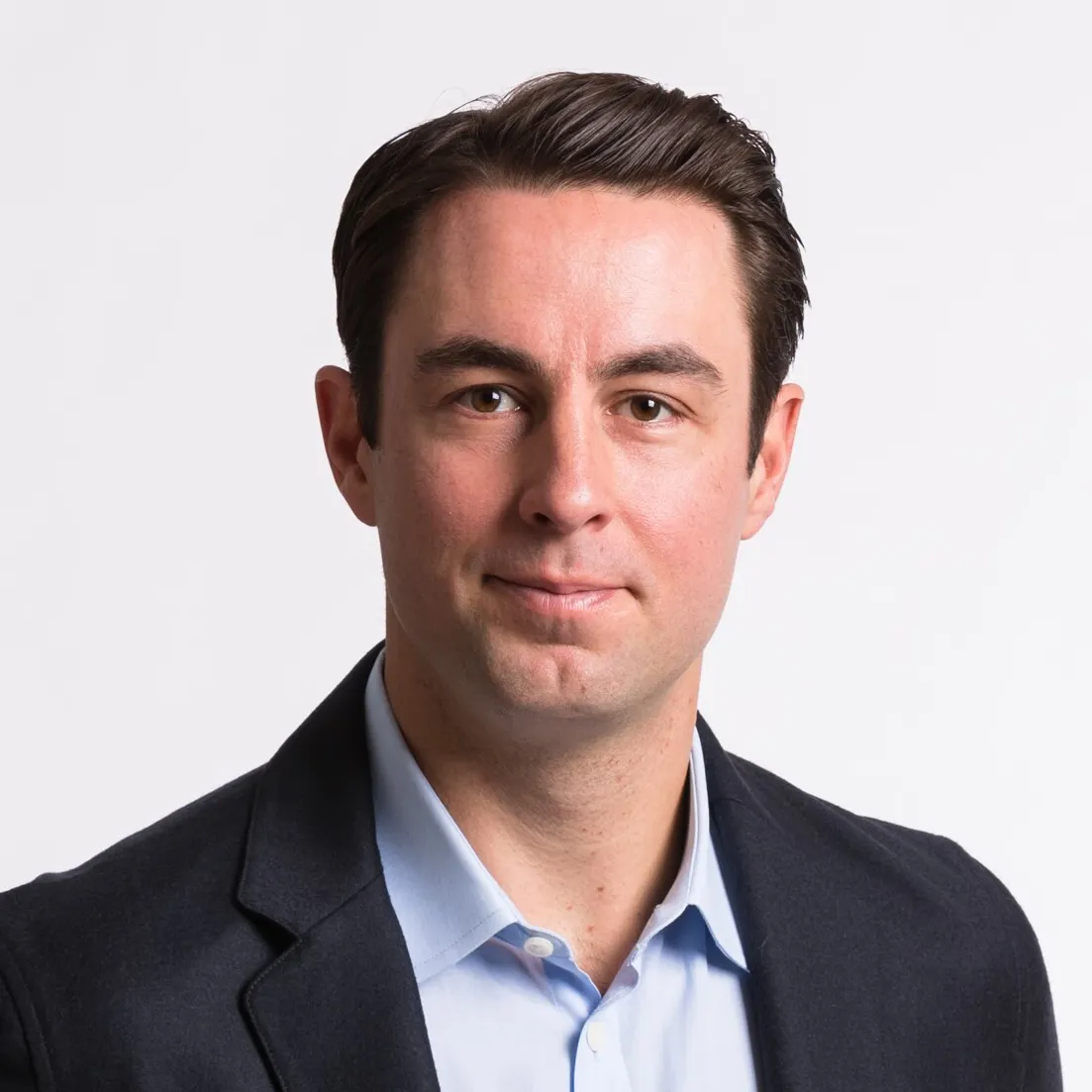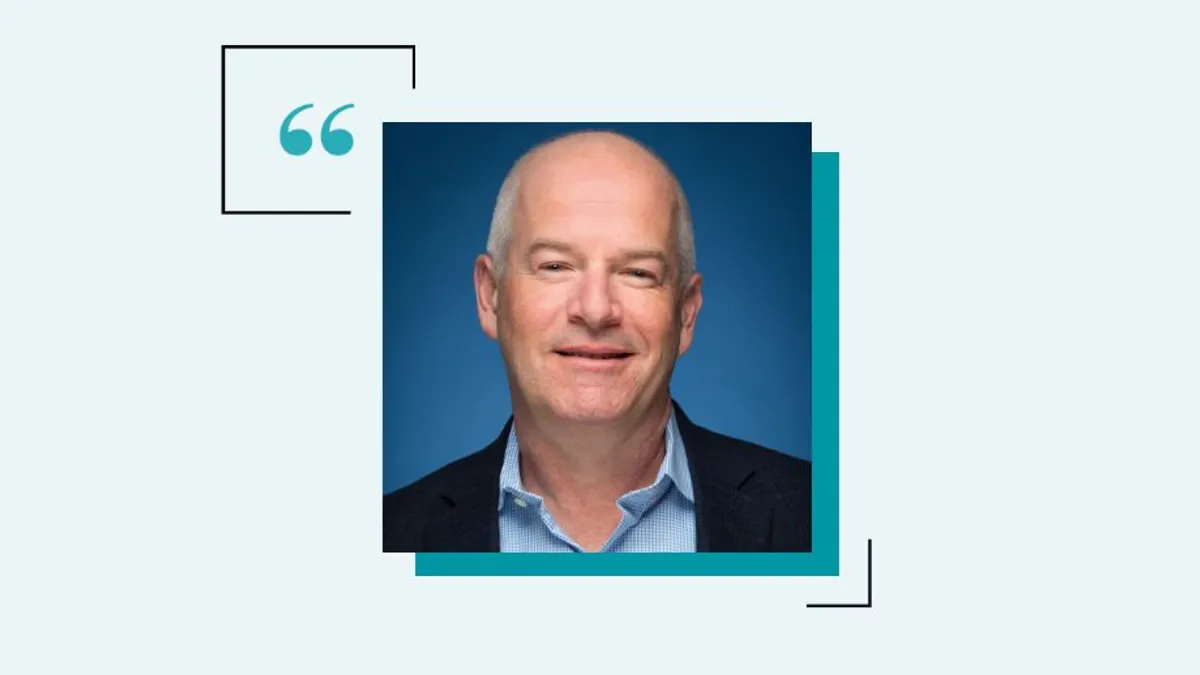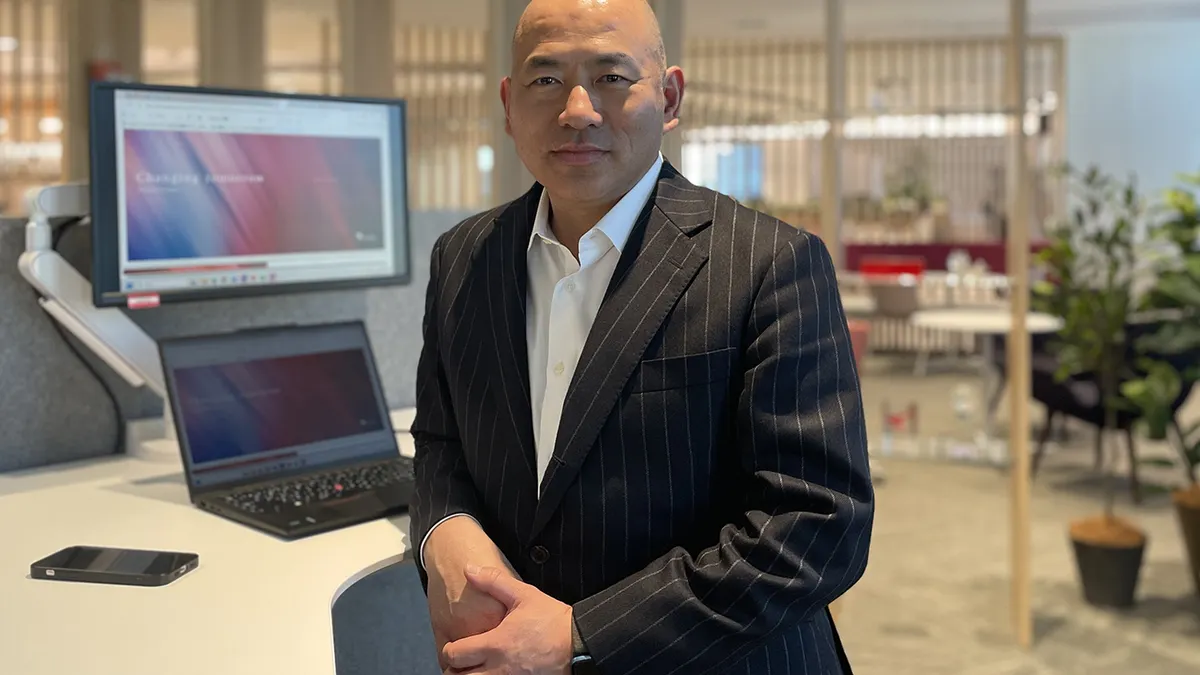Hugo Doetsch, the current CFO of symplr, is currently facing the challenges of learning the intricacies of the health tech industry. In his second stint as a CFO, following his first experience with NetDocuments, he is accustomed to these kinds of hurdles.
Transitioning from a novice to an experienced finance chief brings with it new goals and aspirations, fueled by leadership strategies developed through previous experiences, and Doetsch has learned how to adapt.

Hugo Doetsch
CFO, symplr
- First CFO position: 2020
- Notable previous companies:
- NetDocuments
- Ping Identity
- Citi
This interview has been edited for brevity and clarity.
ADAM ZAKI: What inspired you to take a role in a new industry?
HUGO DOETSCH: I’ve been in the private equity-backed software ecosystem for some time now, and I really aim to be thoughtful as I make career moves and collaborate with new organizations.
What drew me to health tech, and specifically to symplr, is the powerful sense of community within the organization, and of course, the opportunity to make a positive impact within the healthcare industry. Knowing the company partners with nine out of 10 U.S. hospitals and health systems really showed me the trust they earned and the impact they are already having on healthcare.
What did you learn in your previous work experience that has helped you in getting off to a good start at symplr?
DOETSCH: I’m a big believer that providing best-in-class solutions that serve a market need goes a long way in making a business successful, but I think what really creates world-class businesses are the operating teams. Building teams with cross-functional alignment in addition to rallying resources from across the organization to make an initiative work (and thrive) is so important.
My prior experience involves all these aspects, from building the right teams, obtaining synergy across functions, and making sure we’re all driving toward the same North Star with a shared goal and purpose.
"I think what really creates world-class businesses are the operating teams."

Hugo Doetsch
CFO
It’s also important to put in place the right processes and systems to ensure any business can scale. This approach enables a business to continue to best serve its customers in addition to growing, scaling, and innovating in a profitable and meaningful way.
You’re no longer a “rookie” CFO, so to speak. What do you believe are some of the assets you bring to the table, and what are you looking to continue to improve on as you grow your career?
DOETSCH: In any operating role, you have to adapt to the way individual businesses operate. I learned so much about business operations at Ping Identity, which we took public in 2019 and were able to produce an incredible outcome for the business and our sponsors.
My first CFO role was with NetDocuments, and throughout my tenure there, I learned how to properly build strong teams, how to scale, and how to accomplish a myriad of tasks like pricing and packaging.
There will be new operational nuances and challenges in any endeavor, but it’s important to take those experiences that you've learned in different operating roles and apply them to new ones. It’s also important to understand what didn’t work in previous positions to help learn for the next endeavor.
So far, what specific financial performance metrics or KPIs have you been monitoring the most to assess the company’s progress and financial stability?
DOETSCH: The need for healthcare operations is significant and improvements in workforce management, quality, provider data, and contract spending can mean the difference between organizations surviving or thriving. So I’m heavily focused on our part in solving that problem. From a top-line perspective, I am focused on revenue growth and bookings.
I’m also reviewing net customer retention rates and determining how to continue enhancing them. Although this is a strong suit for symplr, there are always ways to improve. In a similar vein, gross retention rates are a key priority for me along with the overall profitability of the business.
Interest rates are high, so there has been a keen focus on cash, determining how collections can be improved, and how the organization can be more efficient with spending with a keen focus on return on investment.
What are you prioritizing right now going into Q4?
DOETSCH: Hitting our full-year budget is top of mind at this stage of the year. We want to ensure that we keep our year-to-date momentum through Q4 and into 2024. Like a lot of businesses, we are going into budgeting season. Our intention is to be extremely disciplined around budgeting this year and I expect every function to do a detailed review of their spend, team, processes, etc., going into 2024.
Given our focus on both growth and profitability, we are continuously evaluating where we are making investments to ensure they are driving the right return on investment and are providing the best possible outcomes for our customers. We are also looking across the business at our systems and processes to ensure that we are enabling our teams to be successful in 2024 and beyond.
What would a perfect close to 2023 look like for you?
DOETSCH: Outperforming our 2023 budget would be ideal, but I also want to make sure that the business is set up extremely well for the year ahead.
Part of that includes ensuring we have a strong budgeting cycle for the back half of this year for next year’s budget and making sure we put in place the right systems, processes, and teams to be extremely successful in 2024, 2025, and beyond. It’s crucial to set a solid foundation over the coming months and final quarter of 2023. The new year will be here before we know it.





















